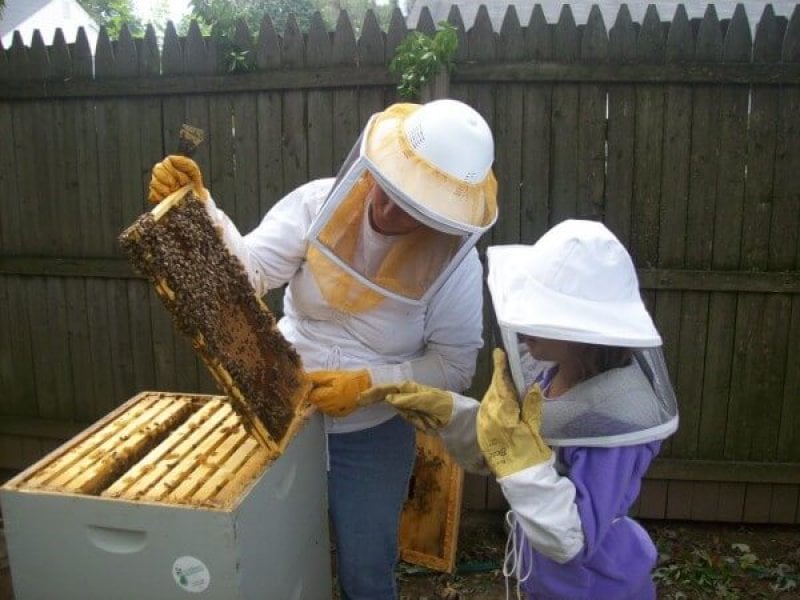Reports of honey bee population decline has spurred many national efforts to understand the extent of the problem and to identify causative or associated factors.
[T]he impacts of beekeeper knowledge and beekeeping management practices have often been overlooked, despite honey bees being a managed pollinator.Here, we established a standardised active monitoring network for 5 798 apiaries over two consecutive years to quantify honey bee colony mortality across 17 European countries.
…
[M]odels revealed that hobbyist beekeepers with small apiaries and little experience in beekeeping had double the winter mortality rate when compared to professional beekeepers. Furthermore, honey bees kept by professional beekeepers never showed signs of disease, unlike apiaries from hobbyist beekeepers that had symptoms of bacterial infection and heavy Varroa infestation.Our data highlight beekeeper background and apicultural practices as major drivers of honey bee colony losses.
…
Our results show that the main factors protecting honey bee colonies are beekeeper background and practices. More efforts are needed in beekeeper training to promote good beekeeping practices and achieve early identification of clinical signs of disease.
The GLP aggregated and excerpted this blog/article to reflect the diversity of news, opinion, and analysis. Read full, original post: A pan-European epidemiological study reveals honey bee colony survival depends on beekeeper education and disease control
For more background on the Genetic Literacy Project, read GLP on Wikipedia































